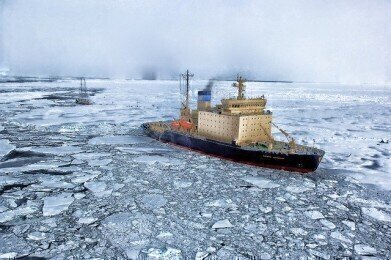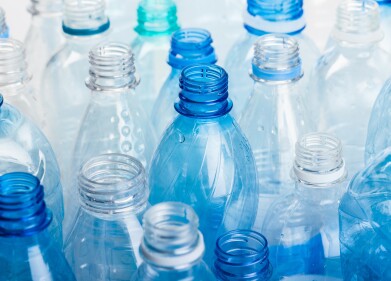Analytical Instrumentation
How is the UN Changing Shipping Fuel Regulations?
Sep 17 2020
In the latest attempt to reduce the environmental footprint of the maritime industry, the UN is drafting proposals that will ban the use and transport of heavy oil fuel (HFO) in the Arctic. While some environmentalists have praised the move, others warn the proposals are laced with waivers and loopholes that will allow many ships to continue operating on heavy fuel and sidestep emissions regulations.
While Antarctic waters are heavily protected, rules in the Arctic are more relaxed and allow the use of HFO. Also known as bunker fuel, HFO is notorious for its high emissions, including toxic pollutants such as nitrogen oxide, sulphur oxide and black carbon. The fuel is extremely vicious and takes a long time to break down, with the process slowed even further in cold environments like the Arctic. With such a high level of risk, the International Maritime Organisation is currently petitioning to ban the use of HFO in the Arctic by 2024, with the latest UN proposals set to support the phaseout.
ICCT says UN proposals ineffective
Despite the progress, the International Council on Clean Transportation (ICCT) says the proposals aren’t strict enough. A recent study released by the non-profit organisation revealed the waivers would allow more than 70% of vessels to continue operating on HFO, which could be devastating for the delicate Arctic ecosystem.
“HFO has already been banned in the Antarctic since 2011, without exemptions or waivers. It’s well beyond time that the Arctic receive the same protections,” says Bryan Comer, a senior marine researcher at ICCT. “If exemptions are included, they should expire well before 2029,” he adds.
Waives put Arctic ecosystem at risk
With temperatures in the Arctic increasing twice as fast as the rest of the world over the past 30 years, the ICCT says acting now is critical. “Results show that the proposed ban would have eliminated only 30% of HFO carriage and 16% of HFO use in 2019, and this would have reduced BC emissions by only 5%,” reads the study. “This is important because HFO use in the Arctic is increasing - it grew 75% between 2015 and 2019. As newer ships enter the Arctic fleet, especially oil tankers and bulk carriers, more ships will qualify for exemptions. Additionally, if ships reflag to Arctic states, more could qualify for waivers and the effectiveness of the ban would be further eroded.”
It's not just the maritime industry working to reduce emissions, with refineries also under pressure to minimise their environmental footprints. To find out more don’t miss ‘Digitalisation Transforms Refinery Emissions Monitoring and Combustion Control Gas Analysis.
Digital Edition
PIN 25.1 Feb/March
March 2024
In This Edition Safety - The technology behind the ION Science Tiger XT - Safety with ammonia and LOHCs as hydrogen carriers Analytical Instrumentation - Discussion on new tribology te...
View all digital editions
Events
Apr 22 2024 Hannover, Germany
Apr 22 2024 Marrakech, Morroco
Apr 22 2024 Muscat, Oman
Apr 22 2024 Rotterdam, Netherlands
Apr 23 2024 Singapore


















